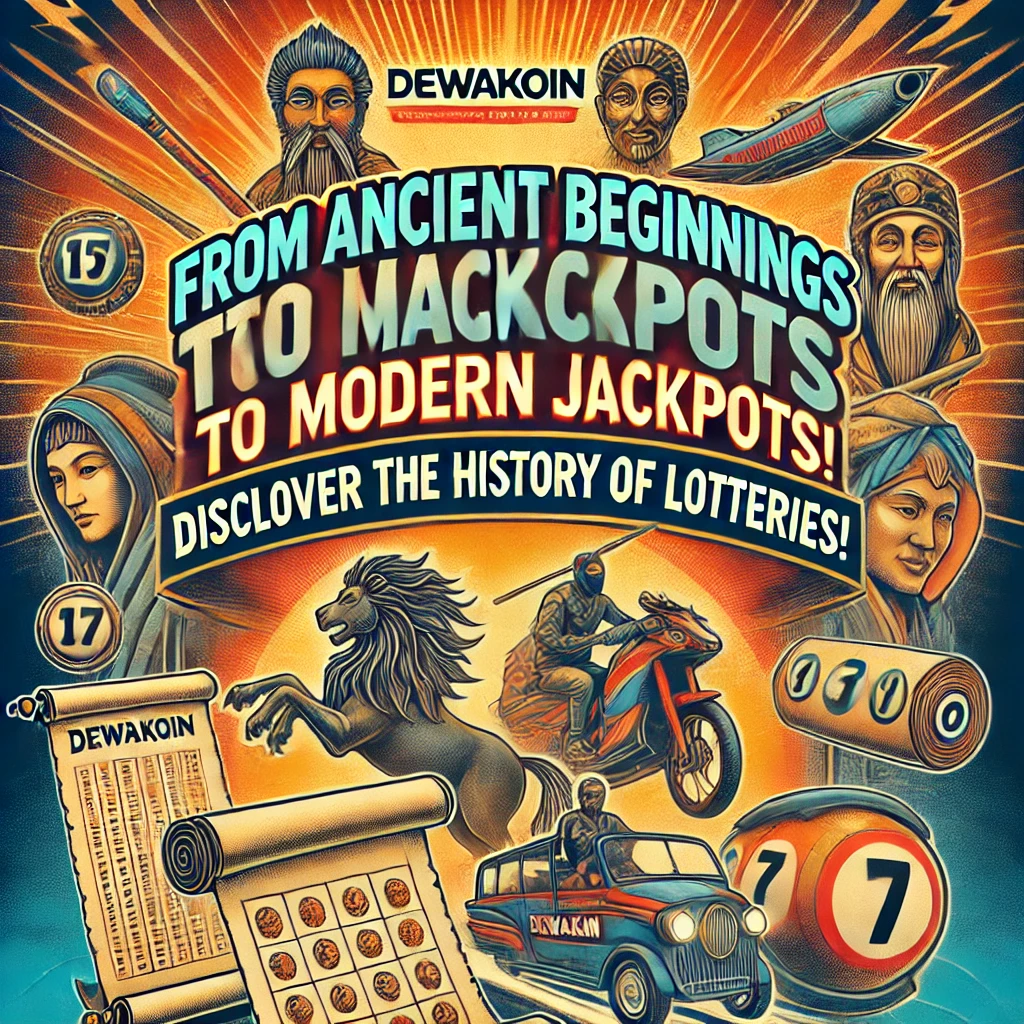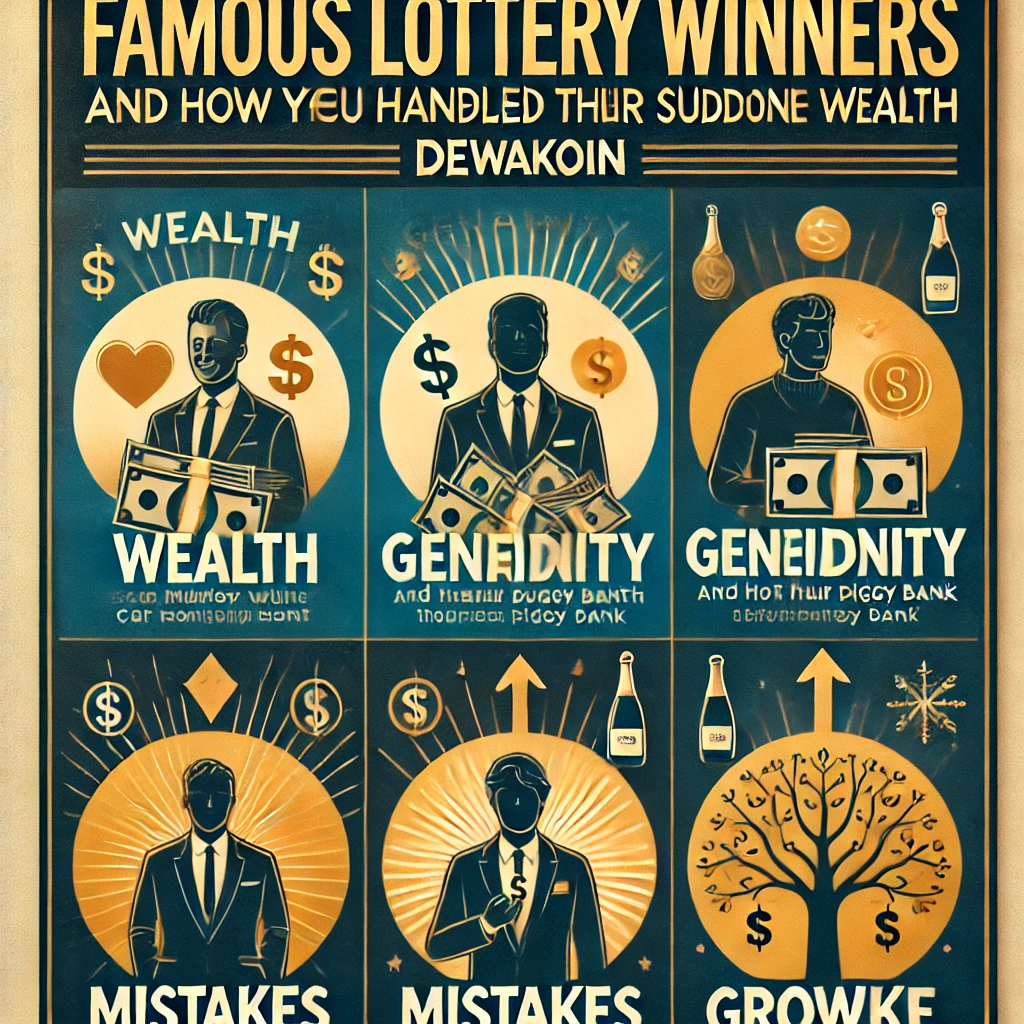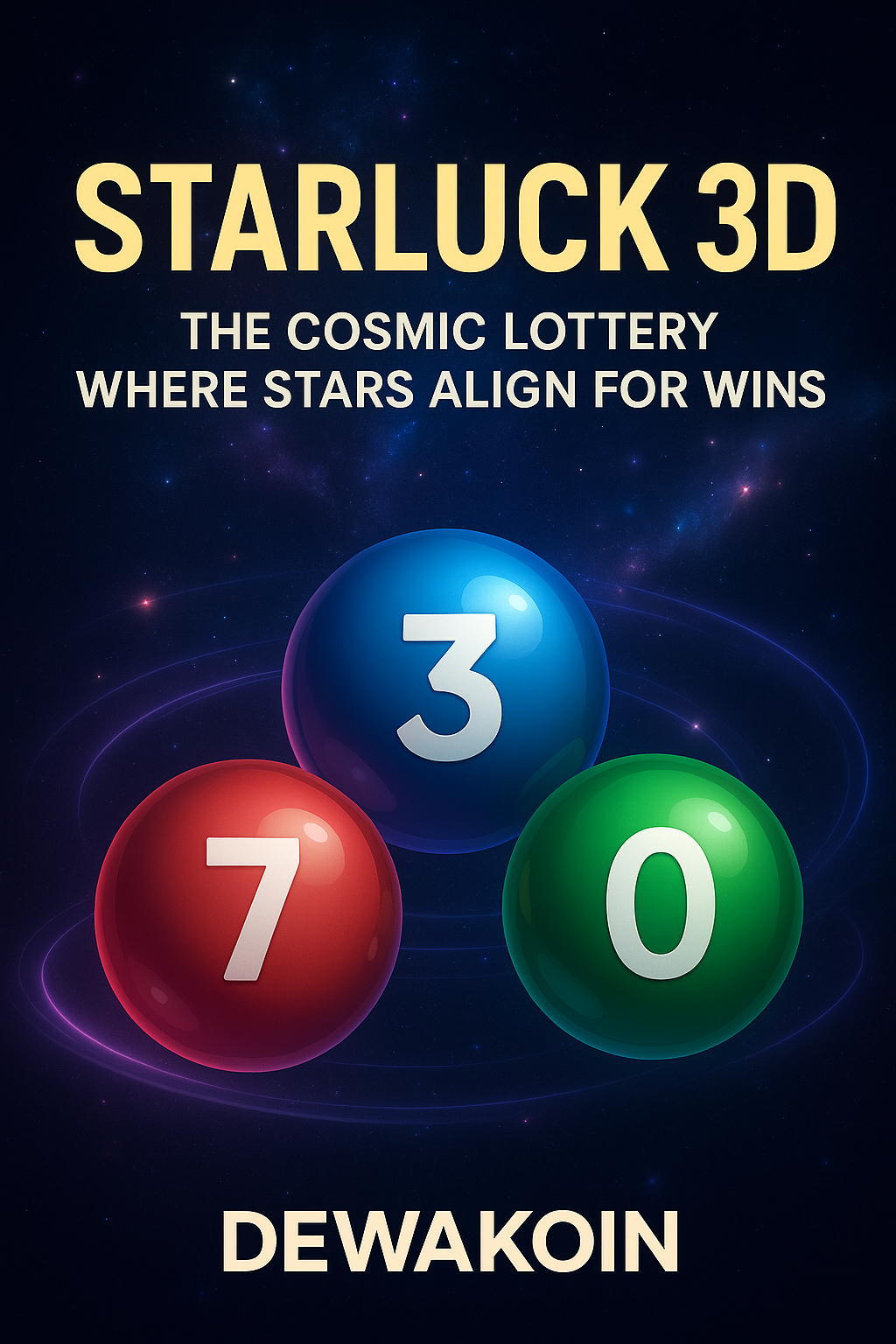Lotteries have a long and fascinating history, with roots going back centuries. From their humble beginnings as local fundraisers to their evolution into multi-million-dollar global events, lotteries have come a long way. But what did early lotteries actually look like, and how did they function in societies of the past?
At DEWAKOIN, we’re diving into the origins of early lotteries, exploring their role in shaping society, and discovering how they evolved into the modern games we know today.
1. The Origins of Early Lotteries
The history of lotteries dates back to ancient times, with evidence suggesting that they were used for a variety of purposes, from fundraising for public projects to determining property distribution. Here’s a look at some key moments in the history of lotteries:
1. Ancient China: A Tool for Fundraising
- Circa 205-187 BC, the Han Dynasty in China is one of the earliest known examples of lotteries. These early lotteries were used to fund government projects, including the building of the Great Wall of China.
- The Chinese Keno game, originally part of their lottery system, would later evolve into the game we know today.
2. Roman Empire: A Lottery for the Elites
- In ancient Rome, lotteries were held at banquets and parties where guests could receive gifts by drawing lots. While not necessarily a form of gambling, these early lotteries were a way for the wealthy to distribute prizes and maintain social connections.
- The first known recorded lottery was in Rome around 100 BC during a banquet hosted by Emperor Augustus. Proceeds from this lottery were used to repair the city’s infrastructure.
3. Medieval Europe: A Tool for Public Good
- During the Middle Ages, lotteries began to take a more formalized structure in European cities. They were used to fund public works projects, including road construction, city defenses, and even charitable causes.
- The first European public lottery was held in 1446 in Brussels, and over the next few centuries, more cities adopted lotteries as a way to raise funds for community needs.
4. The Birth of the Modern Lottery: 17th and 18th Centuries
- By the 17th century, lotteries in France and England began to resemble modern games, with prize pools and formalized rules. They became widely popular as a way for governments to raise funds without taxing their citizens directly.
- In 1776, the United States held its first official lottery to raise funds for the American Revolution, showcasing how lotteries had expanded to more significant causes.
2. Early Lotteries: How They Worked
In the past, lotteries weren’t as high-tech or digitally advanced as they are today. Here’s how early lotteries typically worked:
1. Drawing Lots
- The most basic form of a lottery was simply a random drawing of lots, where players would buy a ticket or entry and await their fate.
- Prizes could range from physical goods, like cattle, land, or cloth, to cash or building materials.
2. Lotteries for Fundraising
- Early lotteries were often created to fund public works and social projects rather than as a form of entertainment. The fundraising aspect was a key motivator in the creation of lotteries, especially in medieval Europe.
3. Limited Scope
- Early lotteries were usually local events where only people from a specific area could participate. They were smaller in scale, but the principle of random selection still applied.
3. How Early Lotteries Evolved
While the lottery systems of the past were relatively simple, they laid the foundation for the modern lotteries we see today. Over time, lottery games became more sophisticated, eventually evolving into the multinational, multimillion-dollar games we know now, including:
1. The Advent of Modern Lotteries (20th Century)
- In the 20th century, lotteries became regulated by governments to ensure fairness and transparency. The first state-sponsored lottery in the United States began in 1964 in New Hampshire, and other states followed suit.
- Large-scale national and international lotteries, such as the Powerball and Mega Millions, now offer jackpots that can exceed hundreds of millions of dollars.
2. The Digital Age of Lotteries
- With the rise of the internet, lotteries have moved online, offering players the chance to participate from anywhere in the world. Online scratch-offs, virtual draws, and interactive lottery apps have made it easier for players to access these games.
- Today, lotteries have become a global phenomenon, with players participating from different countries and cultures.
4. Why Lotteries Are Still Popular Today
Despite their long history, lotteries continue to captivate people’s imaginations. Here’s why:
1. The Thrill of Winning Big
- Dreams of instant wealth keep players coming back. The chance to win millions of dollars from a small investment is a powerful draw.
2. Accessibility
- Lotteries are easy to play. With low-cost tickets and many options available, anyone can participate, whether in a local drawing or an online game.
3. The Potential to Make a Difference
- Public lotteries often fund vital community projects, such as education and infrastructure, making players feel like they are contributing to the greater good.
Experience the Best Lotteries at DEWAKOIN!
Looking for the most exciting modern lotteries with big prizes and great causes? Join DEWAKOIN today for:
Live draws for an authentic experience.
Exclusive lottery games with high jackpots.
Safe, secure gaming with fast withdrawals.



